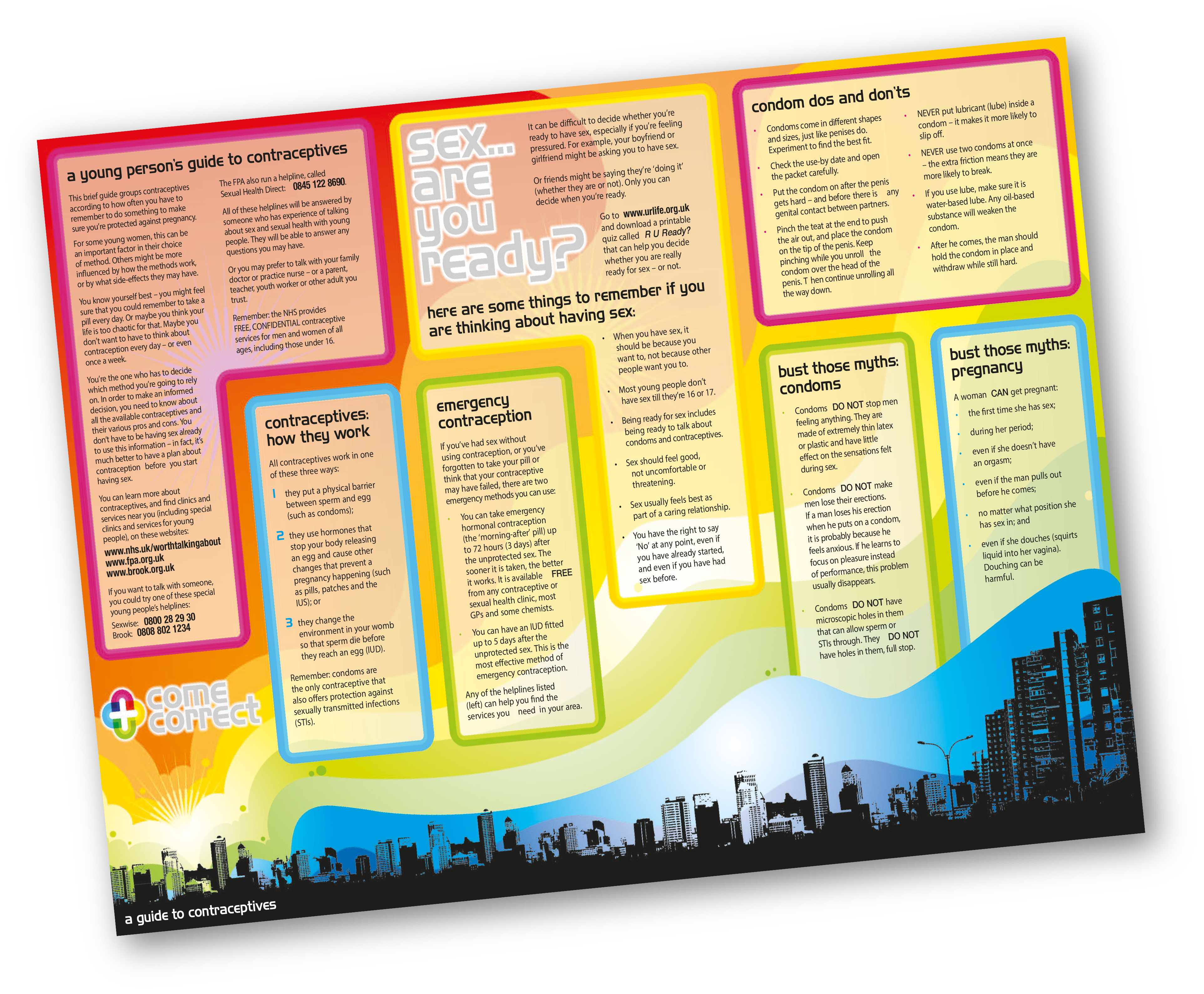Condoms & Contraception
Condoms
Condoms come in different shapes and sizes, just like penises do. Experiment to find the best fit.
Check the use-by date and open the packet carefully.
Check if you are sensitive to latex. Currently there is not an option for latex-free condoms on the C-Card scheme.
For more information on latex allergies and latex-free condoms click here.
Put the condom on after the penis gets hard – and before there is any genital contact between partners.
Pinch the teat at the end to push the air out, and place the condom on the tip of the penis. Keep pinching while you unroll the condom over the head of the penis. Then continue unrolling all the way down.
NEVER put lubricant (lube) inside a condom – it makes it more likely to slip off.
NEVER use two condoms at once – the extra friction means they are more likely to break.
If you use lube, make sure it is water-based lube. Any oil-based substance will weaken the condom.
After he comes, the man should hold the condom in place and withdraw while still hard.
Download our guide to contraceptives!
To find your nearest outlet click on ‘find an outlet’ and select your Borough.
Bust those condom myths!
Condoms DO NOT stop men feeling anything. They are made of extremely thin latex or plastic and have little effect on the sensations felt during sex.
Condoms DO NOT make men lose their erections. If a man loses his erection when he puts on a condom, it is probably because he feels anxious. If he learns to focus on pleasure instead of performance, this problem usually disappears.
Condoms DO NOT have microscopic holes in them that can allow sperm or STIs through.
They DO NOT have holes in them, full stop.
Condom demo video
Due to the outbreak of coronavirus, instead of being offered a physical condom demonstration, you may instead be asked to view the below video.
Contraception
This brief guide groups contraceptives according to how often you have to remember to do something to make sure you’re protected against pregnancy.
For some young women, this can be an important factor in their choice of method. Others might be more influenced by how the methods work, or by what side-effects they may have.
You know yourself best – you might feel sure that you could remember to take a pill every day. Or maybe you think your life is too chaotic for that. Maybe you don’t want to have to think about contraception every day – or even once a week.
You’re the one who has to decide which method you’re going to rely on. In order to make an informed decision, you need to know about all the available contraceptives and their various pros and cons. You don’t have to be having sex already to use this information – in fact, it’s much better to have a plan about contraception before you start having sex.
You can learn more about contraceptives, and find clinics and services near you (including special clinics and services for young people), on these websites:
Want to talk to someone?
If you want to talk with someone, you could try one of these special young people’s helplines:
Sexwise: 0800 28 29 30
Brook: 0808 802 1234
All of these helplines will be answered by someone who has experience of talking about sex and sexual health with young people. They will be able to answer any questions you may have.
Or you may prefer to talk with your family doctor or practice nurse – or a parent, teacher, youth worker or other adult you trust.
Remember: the NHS provides FREE, CONFIDENTIAL contraceptive services for men and women of all ages, including those under 16.
Not all outlets offer a full contraceptive service, to find your nearest outlet and what services they offer click on ‘find an outlet’ and select your Borough.

Want to talk to someone?
All contraceptives work in one of these three ways:
- They put a physical barrier between sperm and egg (such as condoms);
- They use hormones that stop your body releasing an egg and cause other changes that prevent a pregnancy happening (such as pills, patches and the IUS); or
- They change the environment in your womb so that sperm die before they reach an egg (IUD). Remember: condoms are the only contraceptive that also offers protection against sexually transmitted infections (STIs).
Emergency contraception
If you’ve had sex without using contraception, or you’ve forgotten to take your pill or think that your contraceptive may have failed, there are two emergency methods you can use:
- hormonal contraception (the ‘morning-after’ pill) up to 72 hours (3 days) after the unprotected sex. The sooner it is taken, the better it works. It is available FREE from any contraceptive or sexual health clinic, most GPs and some chemists.
- You can have an IUD fitted up to 5 days after the unprotected sex. This is the most effective method of emergency contraception.
Any of the helplines listed (left) can help you find the services you need in your area.
To find out about Emergency Contraception in your area;
- click ‘Find an outlet’
- then click on your Borough
- finally click ‘Emergency Contraception’ (in the links menu)
